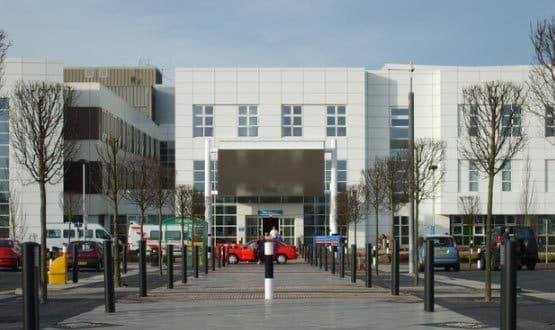The Dudley Group NHS Foundation Trust has issued a tender for an electronic patient record in a shift in the way that it delivers IT.
The trust is looking for key functionality such as clinical documentation, order communications, electronic prescribing and theatres and plans to go-live in 2018.
Dudley was one of a handful of NHS trusts that contracted with an external company for the provision of IT services; in its case as part of a private finance initiative deal.
The 18 year deal, with Siemens Healthcare via Summit Healthcare, was signed in 2002 to cover the management of the trust’s core infrastructure, operating systems, and hardware.
It should have seen the trust push ahead with a ‘level three’ electronic patient record, as defined by the national Information for Health strategy in 1998, and become a flagship for Siemens’ Soarian clinicals software, which was in widespread use in Germany.
However, a strategic review in 2010 concluded that its implementation had been ‘patchy’, with many departments sticking with their own arrangements, or coming up with local work-arounds.
The review concluded that the trust should appoint its own director of IT and review its options for an EPR focused on ‘Clinical 5’ functionality.
Mark Stanton, The Dudley Group's present chief information officer, said: "The contract for the complete IT provision, including the electronic patient record and IT services, was with the trust's PFI partner, Summit Healthcare.
"It had an agreement with Siemens for delivery. This contract was terminated in December 2014, with the mutual consent of all parties."
More recently, the trust has drawn up a strategic plan to address the challenges laid out by NHS England chief executive Simon Stevens in the ‘Five Year Forward View’. This identifies a new EPR as key to delivering on the plan, and so securing “the future viability” of the trust.
The strategic plan says it could take six years to embed all of the functionality that The Dudley Group now wants and to realise its benefits. It sets out three phases for this work, with phase one being to “serve notice on the existing arrangements”.
Phase two will see a new system procured and implemented, plus new functionality including a theatres system, e-prescribing and document management. A third phase will see clinical decision support and patient pathways introduced.
The tender fits within this by saying that the trust is looking for a “wrap” EPR and associated services that can be in place by 2018. Stanton confirmed this week that "the trust currently has no plans to replace its Allscripts (formerly Oasis) patient administration system, and would expect any new EPR to integrate with the existing PAS."
The tender says the trust is looking for “core” functionality that includes “clinical documentation to replace the paper record” across the trust, order communications, key departmental systems including maternity and theatres management, e-prescribing, bed management, “nursing observations and track and trigger alerts”, and a patient portal.
The tender emphasises that the trust is now looking to move fast, saying that it is looking for “a commercial and well-established solution to ensure compliance with the implementation timescales of a go-live date of 2018.”
“Any solution that is not developed for a rapid implementation is unlikely to be successful,” it adds.
Cerner bought Siemen’s health IT business, including Soarian Clinicals, in 2014, after Siemens indicated that it wanted to focus on its digital imaging business.
Cerner indicated at the time that it would continue to support Soarian users and that it would work in partnership with Siemens on some projects, including the integration of therapeutic and diagnostic devices and data with electronic health records.

